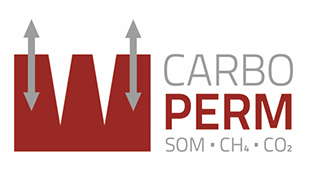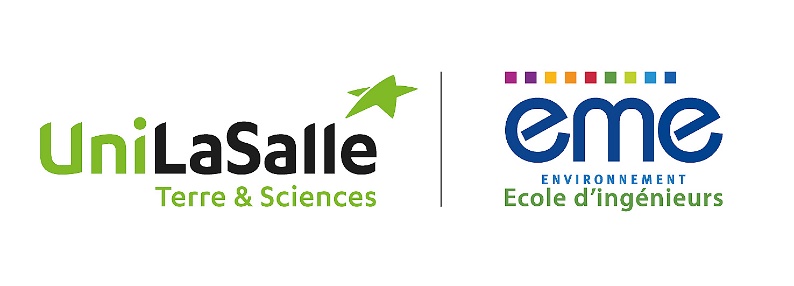┬Ā
┬Ā
Syllabus Permafrost Hydrology ┬Ādownload
┬Ā
┬Ā
┬Ā
|
Course Number |
3.1.1 |
|
|
Title |
Global Biogeochemical Cycles and the Climate System |
|
|
Learning Outcomes |
Students understand the processes controlling the major global cycles of biogeochemical matter between the atmosphere, ocean and land. The students know the interactions between biogeochemical processes and the climate system. |
|
|
Contents |
Biogeochemical processes relevant on the global scale. This includes the explanation of hydrologic, atmospheric, extraterrestrial, geological, biological, and human causes environmental change on time scales of tens, thousands, and millions of years. |
|
|
Educational Concept |
Lectures and exercises |
|
|
Language |
English |
|
|
Formal Requirements for Participation |
none |
|
|
Recommended Prerequisites |
┬Ā | ┬Ā |
|
Exam Framework |
Type: |
Joint module exam |
| ┬Ā |
Requirement for registration: |
Successful completion of exercises handed out in the class |
| ┬Ā |
Language: |
English |
| ┬Ā |
Duration/ Size: |
|
|
Credit Points |
4.5 |
|
|
Workload |
Campus study: |
52 hours |
| ┬Ā |
Self-study: |
52 hours |
| ┬Ā |
Exam preparation |
31 hours |
|
Course Type and Usability |
Compulsory for M.Sc. ITES; open for students of related M.Sc. programs, dependent on capacities and schedule. Maximum number of participants: 30 with preference for ITES students |
|
|
Semester |
Semester 3 (M3) of M.Sc. ITES |
|
|
Frequency of Offer |
Annually in the winter semester |
|
|
Duration |
1 semester |
|
|
Module Coordinator |
NN |
|
|
Course Lecturer(s) |
L. Kutzbach |
|
|
Literature |
Will be announced during the course. |
|
┬Ā
|
Course Number |
3.1.6 |
|
|
Title |
Soil, Water and Vegetation Processes and Their Coupling to the Atmosphere |
|
|
Learning Outcomes |
Students have knowledge of the biogeochemical and biophysical processes in soils and the vegetation, and their interaction with the atmosphere. They will obtain a good scientific basis for both measurement- and model-based studies of the coupled processes of soils, vegetation and atmosphere. |
|
|
Contents |
Atmospheric boundary layer characteristics, wind and turbulence mass and energy exchange; aeolian transport and deposition of elements; soil energy budget; soil water dynamics; plant-soil microorganism interactions; soil organic matter processes, organic matter humification and mineralization, heterotrophic respiration; soil methane cycle: production, oxidation and soil-atmosphere transport mechanisms; lateral transport of carbon and nutrients; soil-vegetation atmosphere water and carbon exchange processes, evapotranspiration, photosynthesis, autotrophic respiration; instrumentation for biometeorological measurements (e.g. closed chambers, eddy covariance method, isotope analyses).
|
|
|
Educational Concept |
Lectures with short group exercises |
|
|
Language |
English |
|
|
Formal Requirements for Participation |
none |
|
|
Recommended Prerequisites |
Basic knowledge of soil science and/or plant ecophysiology and/or meteorology |
|
|
Exam Framework |
Type: |
Joint module exam┬Ā |
| ┬Ā |
Requirement for registration: |
Active participation in exercises |
| ┬Ā |
Language: |
English |
| ┬Ā |
Duration/ Size: |
|
|
Credit Points |
3 |
|
|
Workload |
Campus study: |
28 hours |
| ┬Ā |
Self-study: |
32 hours |
| ┬Ā |
Exam preparation |
30 hours |
|
Course Type and Usability |
Compulsory for M.Sc. ICSS; open for students of related M.Sc. programs, dependent on capacities and schedule. |
|
|
Semester |
Semester 3 (M3) of M.Sc. ITES |
|
|
Frequency of Offer |
Annually in the winter semester |
|
|
Duration |
1 semester |
|
|
Module Coordinator |
NN |
|
|
Course Lecturer(s) |
L. Kutzbach |
|
|
Literature |
Will be announced during the course.
|
|
┬Ā
|
Course Number |
3.1.9
|
|
|
Title |
Permafrost Soils and Landscapes in the Climate System
|
|
|
Learning Outcomes |
Students have gained knowledge about permafrost landscapes, soils and vegetation and their role in the climate system. A focus will be set on periglacial and cryopedogenetic processes. The students improve their understanding of environmental and climatic changes in arctic region. They obtain competence for the evaluation of ecosystem functions and resources of permafrost landscapes. |
|
|
Contents |
High-latitude terrestrial processes in periglacial landscapes; permafrost and active layer processes; soils of different permafrost landscapes; cryosols in the international soil classifications; patterned ground processes, frost-action processes, cryoturbation; tundra vegetation, boreal forests and peatlands, tree- and shrubline dynamics; carbon in permafrost soils and sediments; role of high-latitude terrestrial systems in the global climate system; impact of climate and land use change on arctic and boreal ecosystems and permafrost; observational versus model results of permafrost changes due to climate change. |
|
|
Educational Concept |
Lecture |
|
|
Language |
English |
|
|
Formal Requirements for Participation |
none |
|
|
Recommended Prerequisites |
Basic knowledge of soil science
|
|
|
Exam Framework |
Type: |
Written exam |
| ┬Ā |
Requirement for registration: |
regular and active participation |
| ┬Ā |
Language: |
English |
| ┬Ā |
Duration/ Size: |
60 minutes |
|
Credit Points |
3 |
|
|
Workload |
Campus study: |
28 hours |
| ┬Ā |
Self-study: |
36 hours |
| ┬Ā |
Exam preparation |
26 hours |
|
Course Type and Usability |
Compulsory for M.Sc. ICSS; open for students of related M.Sc. programs, dependent on capacities and schedule. |
|
|
Semester |
Semester 3 (M3) of M.Sc. ITES |
|
|
Frequency of Offer |
Annually in the winter semester |
|
|
Duration |
1 semester |
|
|
Module Coordinator |
NN |
|
|
Course Lecturer(s) |
E.-M. Pfeiffer |
|
|
Literature |
Will be announced during the course. |
|
┬Ā
|
Course Number |
3.1.11
|
|
|
Title |
Terrestrial Ecosystem Processes within Earth System Models |
|
|
Learning Outcomes |
Students have theoretical knowledge and practical skills in terrestrial ecosystem modeling and feedbacks between vegetation and climate and understand and are able to utilize terrestrial biosphere models used for future climate projections. |
|
|
Contents |
The course starts with introduction into main biological and biophysical processes: photosynthesis, land surface hydrology and biophysics, carbon cycle, and plant ecology. The main focus is given on current state-of-the-art in modeling of these processes within Earth System models. Examples of topics include modeling of landuse effects on terrestrial ecosystem and biogeochemistry; modeling of vegetation dynamics under changed climate; assessment of feedbacks between terrestrial ecosystems and climate on multiple spatial and temporal scales. Biogeophysical and biogeochemical effects of land cover and landuse change are analyzed for future climate as well for several chosen paleo climates. |
|
|
Educational Concept |
Lectures and practical exercises |
|
|
Language |
English |
|
|
Formal Requirements for Participation |
none |
|
|
Recommended Prerequisites |
Basic knowledge of biological processes; basic skills in programming on Python, R, or MatLab for solving simple equilibrium or dynamical system equations. |
|
|
Exam Framework |
Type: |
oral |
| ┬Ā |
Requirement for registration: |
regular and active participation |
| ┬Ā |
Language: |
English |
| ┬Ā |
Duration/ Size: |
|
|
Credit Points |
3 |
|
|
Workload |
Campus study: |
42 hours |
| ┬Ā |
Self-study: |
32 hours |
| ┬Ā |
Exam preparation |
16 hours |
|
Course Type and Usability |
Compulsory for M.Sc. ICSS; open for students of related M.Sc. programs, dependent on capacities and schedule. |
|
|
Semester |
Semester 3 (M3) of M.Sc. ITES |
|
|
Frequency of Offer |
Annually in the winter semester |
|
|
Duration |
1 semester |
|
|
Module Coordinator |
NN |
|
|
Course Lecturer(s) |
V. Brovkin |
|
|
Literature |
Will be announced during the course. |
|






